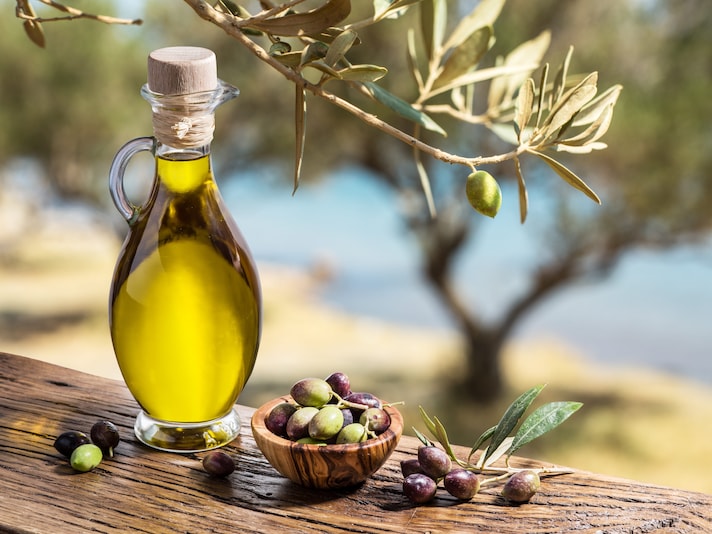
There are many foods to which we should pay particular attention: among these we certainly find extra virgin olive oil, one of the main pillars of the Mediterranean diet. A great ally of our health (when used in moderation) and an absolutely essential element in our kitchens, extra virgin olive oil has, on the label, certain characteristics that allow us to choose an authentic one. But how do we know by tasting if it's truly that good? One of the simplest ways to evaluate it is this: if it tingles, it's quality —contrary to what many people think—and in this article we'll explain why.
Why Does an Oil Sting?
Everyone has probably tried raw olive oil at least once in their life: in a salad, as a garnish at the end of a dish, or on a nice slice of bread with a pinch of salt. So, we've all had the opportunity to savor pure oil, and often (at least we hope) you've experienced a tingling sensation in your throat when tasting it. It's a fairly common belief to consider this a negative aspect, a sign of low-quality oil… but is it true? Although the Latins often said vox populi, vox Dei, it's not always the case… and it isn't in this case either.
That burning and stinging sensation is one of the signs of quality, but it's not enough on its own (for example, an oxidized oil can sting for other reasons). If the stinging is "natural ," that is, a characteristic of the oil, it means the oil is rich in polyphenols, natural organic substances that give the product an aroma that can range from spicy to bitter, and it is precisely these substances that are responsible for this specific sensation. Among them, in particular, is oleocanthal, which, when it comes into contact with the pain and inflammation receptors in the throat, causes a sense of irritation.
But the effect of polyphenols isn't just about flavor: some studies suggest they're excellent antioxidants, anti-inflammatories, and anti-tumor agents. Oleocanthal has even been shown to have similar effects to ibuprofen in reducing inflammation and pain. These are chemical compounds that make extra virgin olive oil an excellent ally for our health, and the higher its content, the greater its beneficial effects and the less likely it is to sting the throat. Furthermore, a high content of polyphenols indicates that the oil was obtained from freshly harvested olives without any of their properties being affected, and therefore, it will be of higher quality.

Remember: If it Stings it's Good, Not Acidic
You've probably also associated that itchy throat with acidic, and therefore unhealthy, oil: and we're here to dispel false myths like this. It's good to know that acidity in oil is a sensation our taste buds can't detect, because the fatty acids it contains are odorless and tasteless. Despite this, however, acidity is an important characteristic of oil, and to know its level, you should always read the label: extra virgin oil contains a maximum of 0.8% fatty acids, a value beyond which the oil is considered "virgin" (up to 2%) and no longer extra virgin.
;Resize,width=767;)
